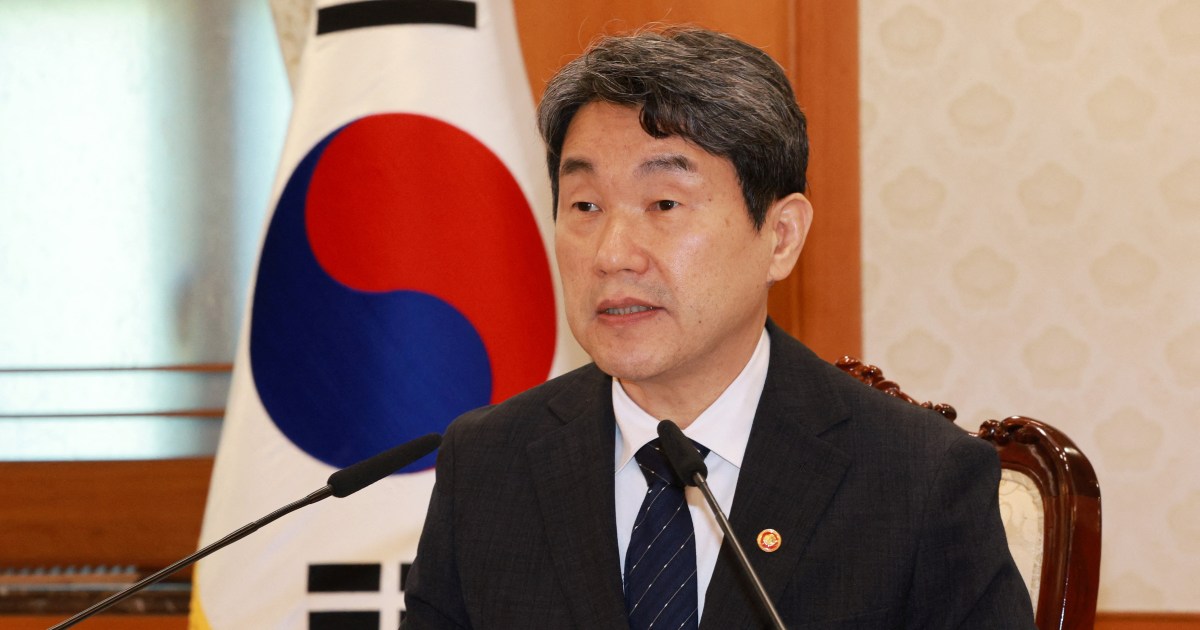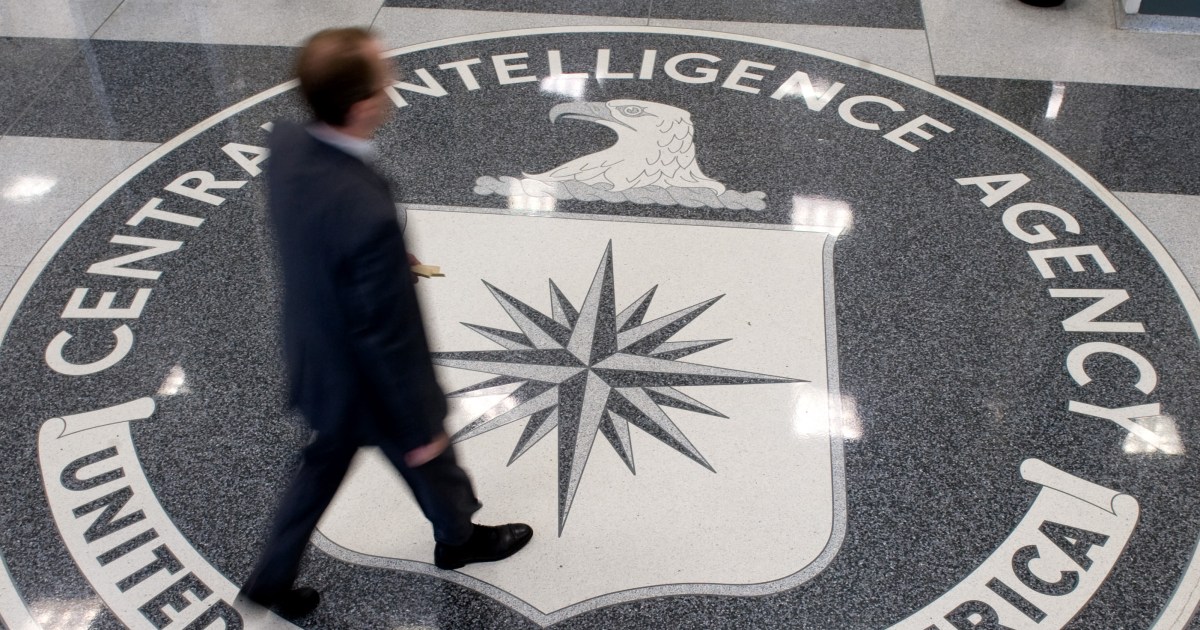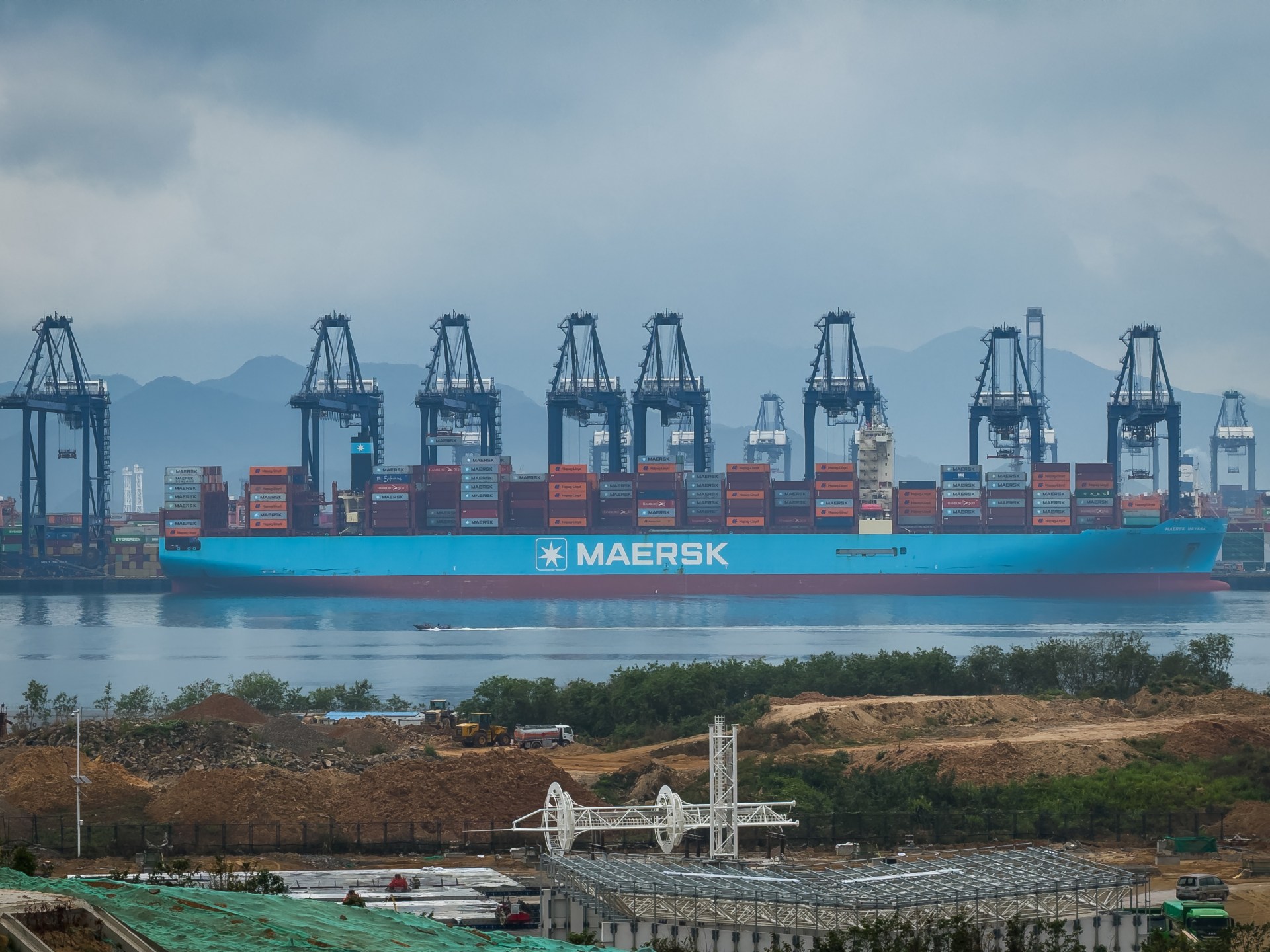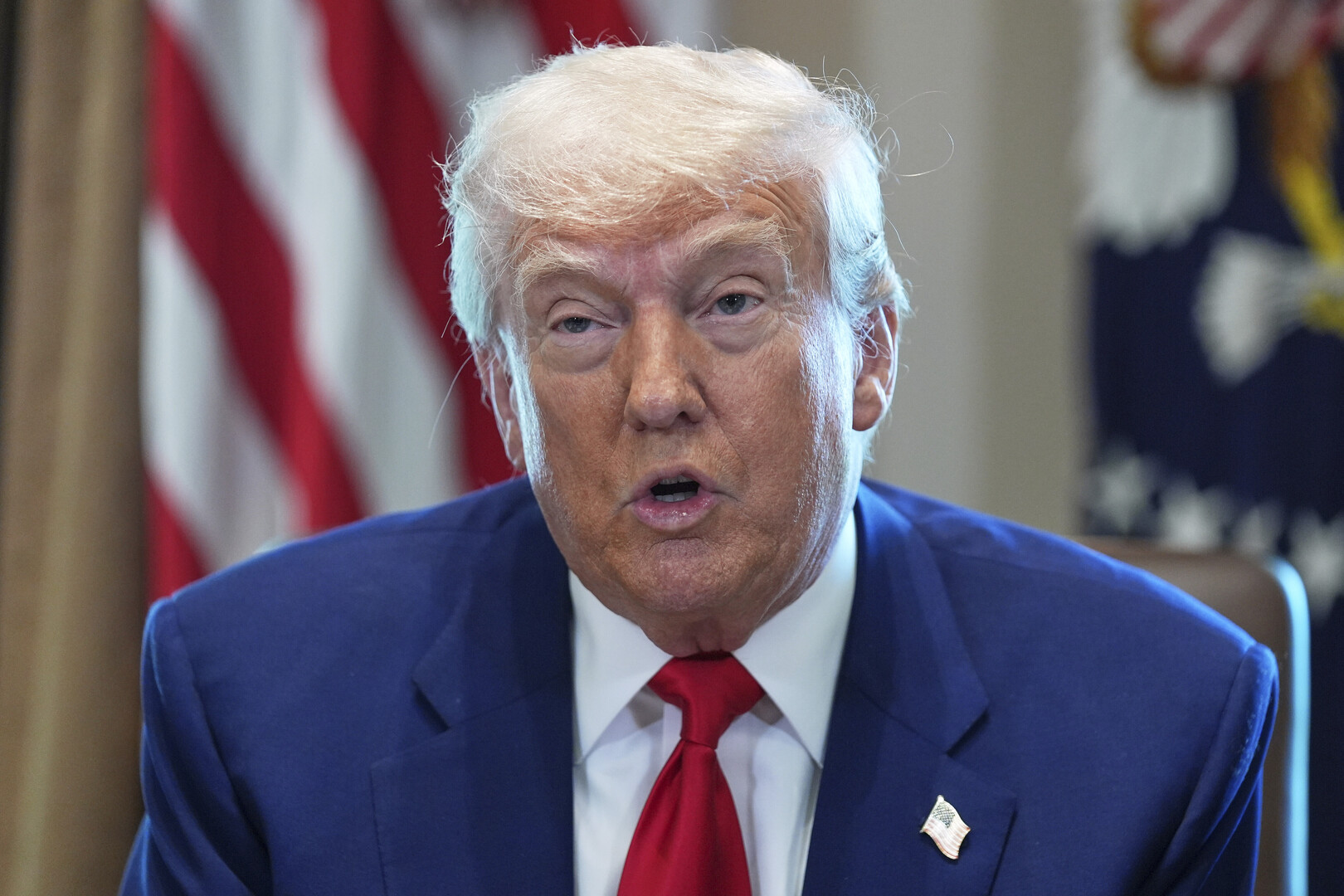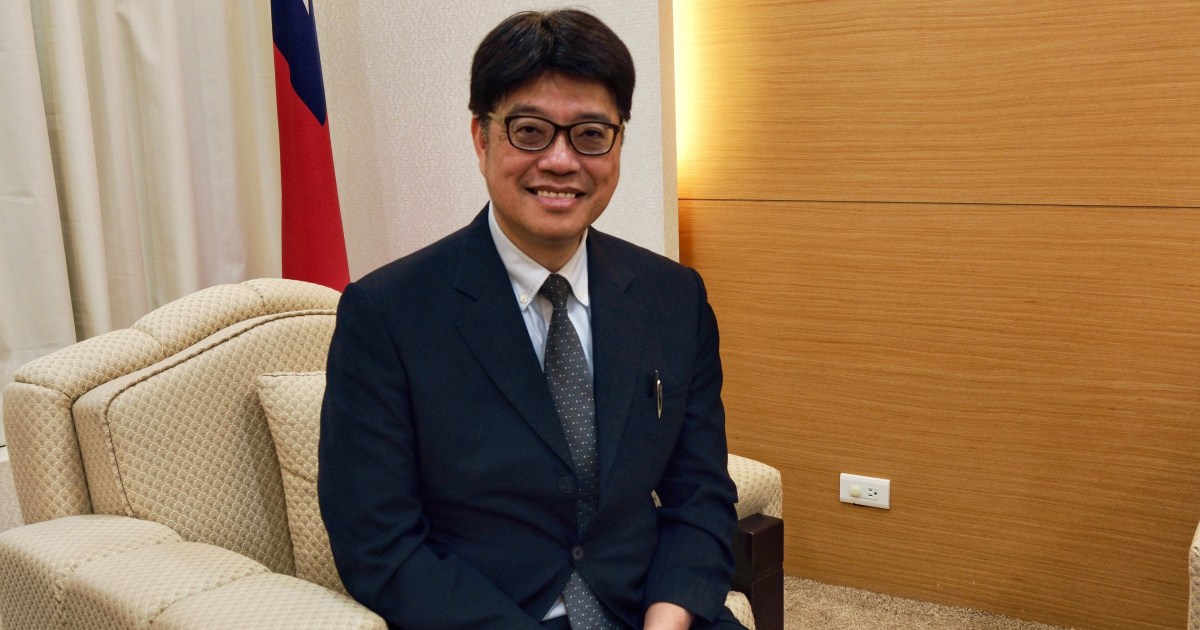Taipei, Taiwan – Taiwan has faith in the support of the United States, a top Taiwanese official has said, despite widespread concern on the island that US President Donald Trump could use the East Asian democracy as a bargaining chip in its dealings with China.
“Taiwan and the US have a very strong and solid relationship, and Taiwan has cross-party support from the US Congress,” Mainland Affairs Council Minister Chiu Chui-cheng said in an exclusive interview with Al Jazeera.
Unlike the US and China, “the US and Taiwan have unprecedentedly close relations,” said Chiu, whose cabinet-level portfolio covers Taiwan’s relations with mainland China, Hong Kong and Macau.
Still, Chiu said it was still too early to fully assess the impact of the second Trump administration.
“The Taiwan government will continue to observe the Trump administration since it has been less than three months,” he said through an interpreter.
“Taiwan’s government has a very consistent position of protecting our sovereignty, our freedom and democracy.”
Trump made headlines in Taiwan in 2016 when he accepted a congratulatory phone call from then-Taiwanese President Tsai Ing-wen, overturning a longstanding convention that US and Taiwanese presidents do not communicate directly.
Ties between the US and Taiwan continued to deepen throughout Trump’s first term and under former US President Joe Biden, with numerous delegations of Democratic and Republican lawmakers visiting the island in recent years.
Since returning to the White House, however, Trump has a launched a series of broadsides at the island, although US Secretary of State Marco Rubio remains a firm Taiwan supporter.
The US president has varyingly accused Taiwan of stealing the US chip industry, argued that Taipei should pay for its own defence, and threatened top Taiwanese chipmaker Taiwan Semiconductor Manufacturing Company (TSMC) with a “100 percent tax” if it does not expand US-based manufacturing.
Trump also hit Taiwan with a 32 percent “reciprocal” tariff – which has been paused until July – and expanded existing steel and aluminium tariffs on its exports, among other initiatives.
Like most countries, the US does not have formal diplomatic relations with Taiwan, which China considers part of its territory.
But Washington is committed to supporting the island’s defence under a 1979 law, though the legislation does not specify an obligation to directly intervene in a conflict.
While Taipei is taking a wait-and-see approach, Trump’s “America First” rhetoric and politics have raised concern among many Taiwanese that he could abandon Taiwan to win concessions in trade talks with China.
In a survey published by the Taiwanese Public Opinion Foundation in March, just 39.2 percent of respondents said they believe the US would send troops to defend Taiwan, down from an all-time high of 65 percent in 2021.
Despite these fears, Chiu said he believes that Washington would never accept an “unreasonable request” from Beijing to alter the terms of its relationship with Taiwan.
China has pledged to “reunify” Taiwan with the Chinese mainland, by force if necessary, although the ruling Communist Party has never directly controlled the island.
Chiu said Taiwan has much to offer the US, from its strategic position within Washington’s first island chain defence strategy aimed at checking Chinese expansion in the Pacific, to its position as the world’s foremost chipmaker.
“We think that we can demonstrate to the US people and to the US people that Taiwan is a very good partner, and we are irreplaceable,” Chiu said.
Chiu’s cabinet-level portfolio oversees the planning and implementation of Taiwan’s cross-strait policy, although Beijing has been officially incommunicado with Taipei since the Democratic Progressive Party took power in 2016.
Beijing considers the DPP “separatists” and has ramped up military, economic and diplomatic pressure on the island over the past nine years.
‘United front’ tactics
Chiu said that Taiwan’s government continues to try to communicate with Beijing through official channels, as well as liaising through intermediaries from the business world, nonprofit sector and academia.
Chiu, however, criticised China’s communications with the opposition Kuomintang (KMT), which he characterised as part of Beijing’s divide and rule and “United Front” tactics employed against Taiwan.
The term “United Front” refers to both an official department of the Chinese Communist Party and activities carried out by party members to promote the CCP agenda – including convincing Taiwan’s 23.4 million citizens that unification with China is both inevitable and desirable, despite polling showing most Taiwanese favour the status quo of de facto independence.
“We are constantly facing United Front tactics, infiltration and division in Taiwanese society. They are everywhere,” Chiu said.
Taiwan’s National Security Bureau prosecuted 64 people for espionage in 2024 – primarily active members of the military and veterans – up from 48 in 2023 and 10 in 2022.
Other threats are more immediately obvious, Chiu said, such as the escalation of Chinese military exercises and manoeuvres near Taiwan over the past five years.
China launched more than 5,000 military flights in the direction of Taiwan in 2024 alone, Chiu said, including about 3,000 that crossed the “median line” of the Taiwan Strait – an unofficial border dividing the strategic waterway between China and Taiwan.
Beijing also sent more than 2,500 warships in the direction of Taiwan, with some entering its contiguous waters, he said, referring to the zone that is adjacent to the territorial sea and extends a maximum of 24 nautical miles (44km) from shore.
Chiu said he was most concerned about the leadership style of Chinese President Xi Jinping.
Xi, who is serving an unprecedented third term after eliminating term limits in 2018, is sometimes seen as the most powerful Chinese leader since Mao Zedong, the founder of modern China.
“The Xi regime is a new type of authoritarianism. He has been inciting a fanatic nationalism, and that’s why we are seeing military hegemony and wolf warrior diplomacy,” Chiu said.
“Mainland China right now is not a very rational decision-making party, and this nationalism poses a great threat to its neighbouring countries,” Chiu said.
“If you ask me what concerns me the most, I would say that it’s the essence of the Xi regime,” he said.
